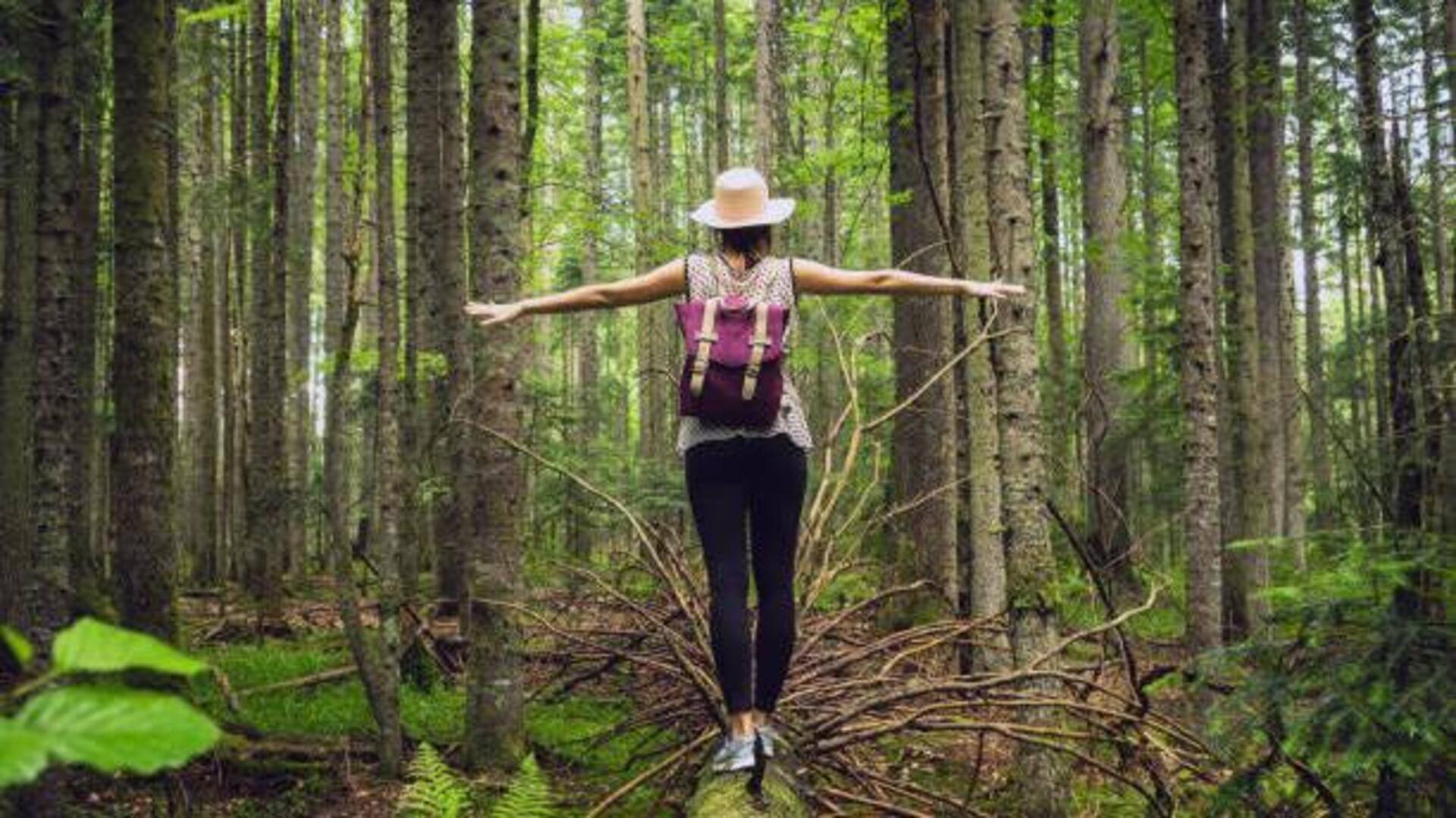
Forest bathing: Concept and how to practice
What's the story
Forest bathing, or Shinrin-yoku, is all about immersing yourself in nature for better well-being. The Japanese practice centers around the therapeutic benefits of spending time in forests. It encourages people to engage their senses and connect with the natural world. Unlike hiking or jogging, forest bathing is all about slowing down and being mindful of the surroundings. It's a popular way to cut stress and improve mental health.
Location selection
Choosing the right location
Selecting an appropriate location is critical for effective forest bathing. Look for areas with dense tree cover and minimal human interference. National parks or local nature reserves can be your ideal choices. The key is finding a place where you feel comfortable and safe while being surrounded by the nature's tranquility. Avoid crowded spots so that you can have a peaceful experience.
Sensory engagement
Engaging your senses
Forest bathing focuses on using all your five senses to experience your surroundings. Listen to rustling leaves, watch different shades of green, touch tree bark, breathe in fresh air, and taste any edible plants if safe. This sensory immersion is what helps ground you in the moment and reinforces mindfulness.
Tech-free time
Disconnecting from technology
If you want to reap the full benefits of forest bathing, it's important to disconnect from technology while you're in nature. Leave behind phones and other gadgets or turn them off completely. This way, you can concentrate fully on your surroundings without any distractions from digital notifications or screens.
Mindful movement
Practicing mindful walking
Mindful walking is one of the most important aspects of forest bathing. It involves walking slowly through the forest, being mindful of every step you take. Focus on how your feet connect with the ground beneath as you walk leisurely through trails or open spaces within forests.